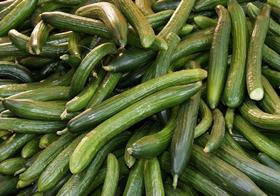
As the fallout from the E.coli outbreak in Europe continues, Freshfel Europe has called on the European Commission to urge German authorities to immediately withdraw recommendations not to eat specific vegetable categories.
Putting in place such recommendations for tomatoes, cucumber and salads without concrete evidence is, according to Freshfel, discrediting the sector, impacting the image of fresh produce and having a 'severe impact' on the whole business.
In a letter sent by Freshfel to agriculture commissioner Dacian Ciolos and health and consumer commissioner John Dalli, the association also noted that it is of the 'utmost importance' that the source of the contamination is identified.
'In absence of any scientific evidence, recommendations not to eat in Germany certain fresh vegetables is placing discredit on the sector with a devastating impact on the image of fresh produce towards consumers,' said Luc Clerx, chairman of Freshfel's promotion, communications and image committee. 'A punctual outbreak without an identified source is casting doubts on a specific food category without confirmed scientific back-up nor the evidence that there would be a structural problem in fresh produce.'
Describing the situation for salad vegetables in Europe as 'appalling', the group pointed to plummeting sales across Europe to as much as 20-30 per cent of the normal volume in some member states, with consumption and promotional activities undermined by on-going messages warning against eating certain products.
'Withdrawing these messages is also an essential step along the compensation measures currently discussed by the Commission to assist growers,' added Freshfel general delegate Philippe Binard. 'However, and according to Freshfel, public authorities will also have to embark into a strong communication campaign to restore consumer confidence into fresh produce and gear the sector out of this crisis.'
In the meantime, officials in Germany say they have discovered a cucumber contaminated with the same E.coli strain responsible for the outbreak at a household in the east of the country, although they were unable to confirm which country it had come from and whether or not it was indeed responsible for making family members living at the house ill.
'It's unclear whether the cucumber infected the people, or the people the cucumber,' said Holger Paech, spokesman for the Saxony-Anhalt state health ministry.
Laboratory tests on other samples taken from the house and from retail outlets where the family bought their vegetables had all tested negative for the bacteria, he added.
In the Netherlands, meanwhile, authorities said they had discovered a different and less virulent strain of E.coli on red beet sprouts, and had withdrawn the product from sale as well as recalling consignments shipped to three other countries, including Germany and Belgium.
The Dutch Food Safety Authority said the strain was apparently 'less dangerous' than the one responsible for the major outbreak in neighbouring Germany.



